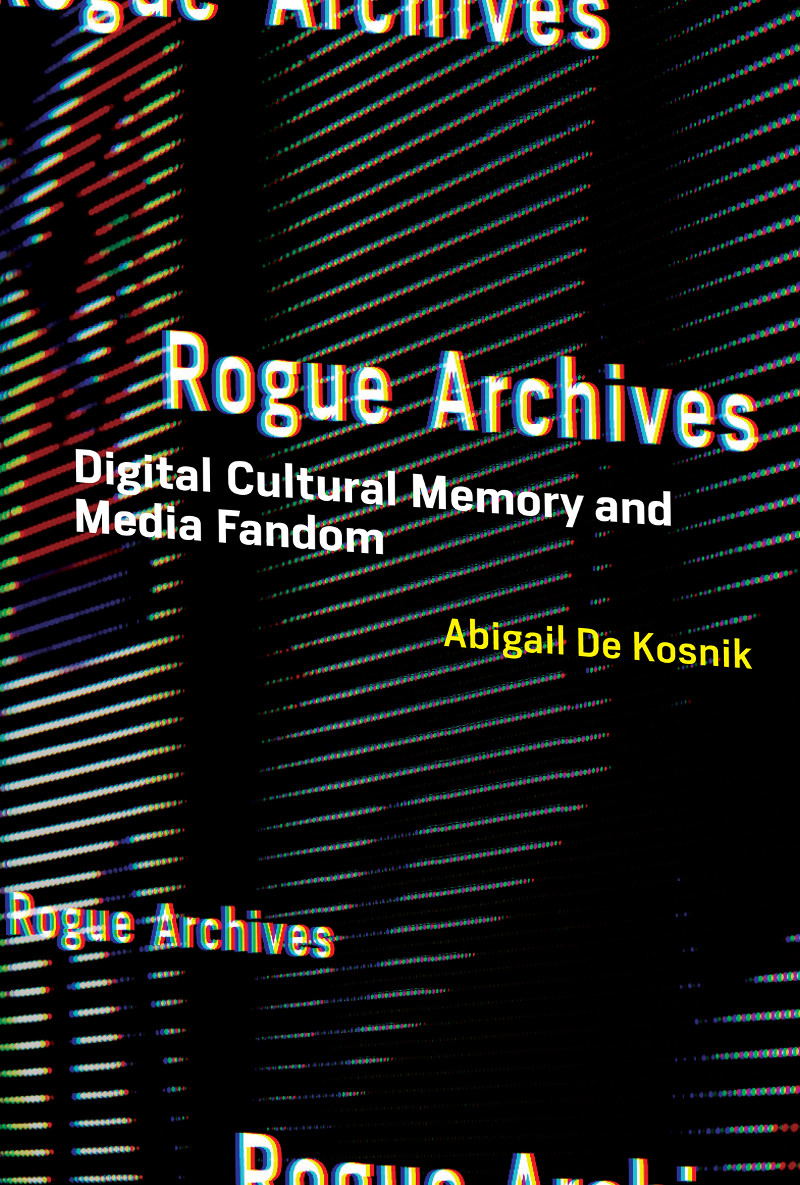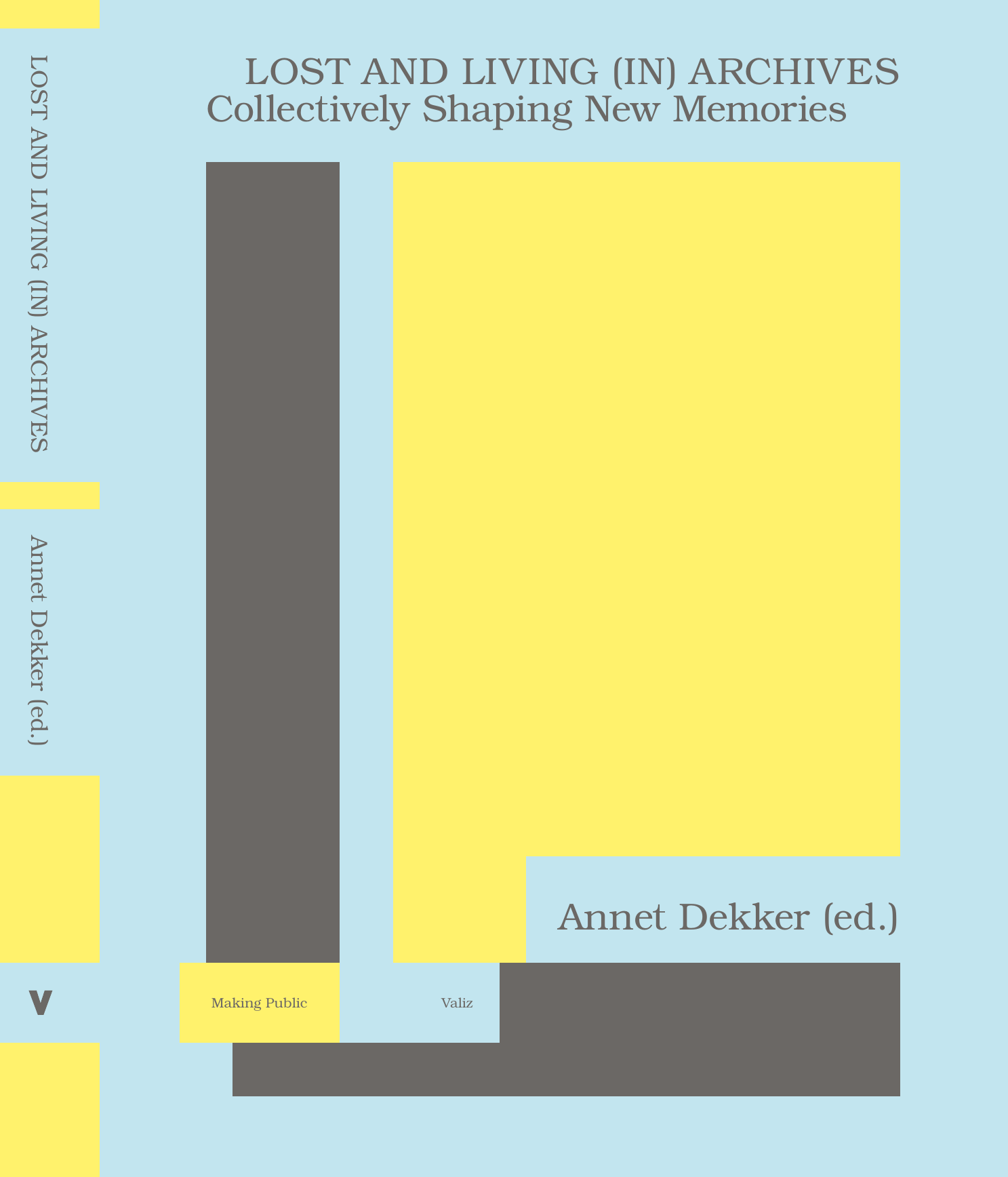Annet Dekker (ed.): Lost and Living (in) Archives: Collectively Shaping New Memories (2017)
Filed under book | Tags: · activism, archive, archiving, art, collectivism, digital media, documentation, internet, living archive, media, media activism, media culture, memory, web
“Archives are collections of records that are preserved for historical, cultural and evidentiary purposes. As such, archives are considered as sites of a past, places that contain traces of a collective memory of a nation, a people or a group. Digital archives have changed from stable entities into flexible systems, at times referred to with the term ‘Living Archives’. In which ways has this change affected our relationship to the past? Will the erased, forgotten and neglected be redeemed, and new memories be allowed? Will the fictional versus factual mode of archiving offer the democracy that the public domain implies, or is it another way for public instruments of power to operate? Lost and Living (in) Archives shows that archives are not simply a recording, a reflection, or an image of an event, but that they shape the event itself and thus influence the past, present and future.
Contributors: Babak Afrassiabi, Dušan Barok, Tina Bastajian, Nanna Bonde Thylstrup, Özge Çelikaslan, Annet Dekker, Olia Lialina, Manu Luksch, Nicolas Malevé, Aymeric Mansoux, Michael Murtaugh, Josien Pieterse, Ellef Prestsæter, Robert Sakrowski, Stef Scagliola, Katrina Sluis, Femke Snelting, Igor Štromajer, Nasrin Tabatabai.”
Publisher Pia Pol, Valiz, Amsterdam, 2017
Making Public series
Creative Commons BY-NC-ND 3.0 NL License
ISBN 9789492095268, 9492095262
285 pages
Reviews: Alessandro Ludovico (Neural, 2018), Natacha Yahi (Critique d’art, 2019, EN/FR).
PDF (16 MB)
Comment (0)Marcello Vitali-Rosati: On Editorialization: Structuring Space and Authority in the Digital Age (2018)
Filed under book | Tags: · algorithm, authority, digital media, editing, editorialization, media, open access, public space, space, web, writing

“In this book Marcello Vitali-Rosati examines how authority changes in the digital era. Authority seems to have vanished in the age of the web, since the spatial relationships that authority depends on are thought to have levelled out: there are no limits or boundaries, no hierarchies or organized structures anymore. Vitali-Rosati claims the opposite to be the case: digital space is well-structured and material and has specific forms of authority. Editorialization is one key process that organizes this space and thus brings into being digital authority. Investigating this process of editorialization, Vitali-Rosati reveals how politics can be reconceived in the digital age.”
Publisher Institute of Network Cultures, Amsterdam, 2018
Theory on Demand series, 26
Creative Commons BY-NC-ND 4.0 International License
ISBN 9492302209, 9789492302205
114 pages
Abigail De Kosnik: Rogue Archives: Digital Cultural Memory and Media Fandom (2016)
Filed under book | Tags: · archive, archiving, cultural memory, digital media, diy, fan culture, fiction, internet, preservation

“The task of archiving was once entrusted only to museums, libraries, and other institutions that acted as repositories of culture in material form. But with the rise of digital networked media, a multitude of self-designated archivists—fans, pirates, hackers—have become practitioners of cultural preservation on the Internet. These nonprofessional archivists have democratized cultural memory, building freely accessible online archives of whatever content they consider suitable for digital preservation. In Rogue Archives, Abigail De Kosnik examines the practice of archiving in the transition from print to digital media, looking in particular at Internet fan fiction archives.
De Kosnik explains that media users today regard all of mass culture as an archive, from which they can redeploy content for their own creations. Hence, “remix culture” and fan fiction are core genres of digital cultural production. De Kosnik explores, among other things, the anticanonical archiving styles of Internet preservationists; the volunteer labor of online archiving; how fan archives serve women and queer users as cultural resources; archivists’ efforts to attract racially and sexually diverse content; and how digital archives adhere to the logics of performance more than the logics of print. She also considers the similarities and differences among free culture, free software, and fan communities, and uses digital humanities tools to quantify and visualize the size, user base, and rate of growth of several online fan archives.”
Publisher MIT Press, 2016
ISBN 9780262034661, 0262034662
x+430 pages
Reviews: Jan Baetens (Leonardo, 2017), Amanda Gilroy (PopMatters, 2017), Ludi Price (2016), Silvia Bertolotti (DigiCult, 2016).
Interview with author: Henry Jenkins (2016), Christina Yang (TDR, 2019).
HTML (added on 2020-3-13)
PDF (10 MB, updated on 2020-3-12)
Academia.edu (added on 2020-3-13)


